Selling property in Portugal: Taxes for Americans
What taxes do you need to pay when selling property in Portugal? Have a look at our guide to learn all about types, deadlines, and special considerations.
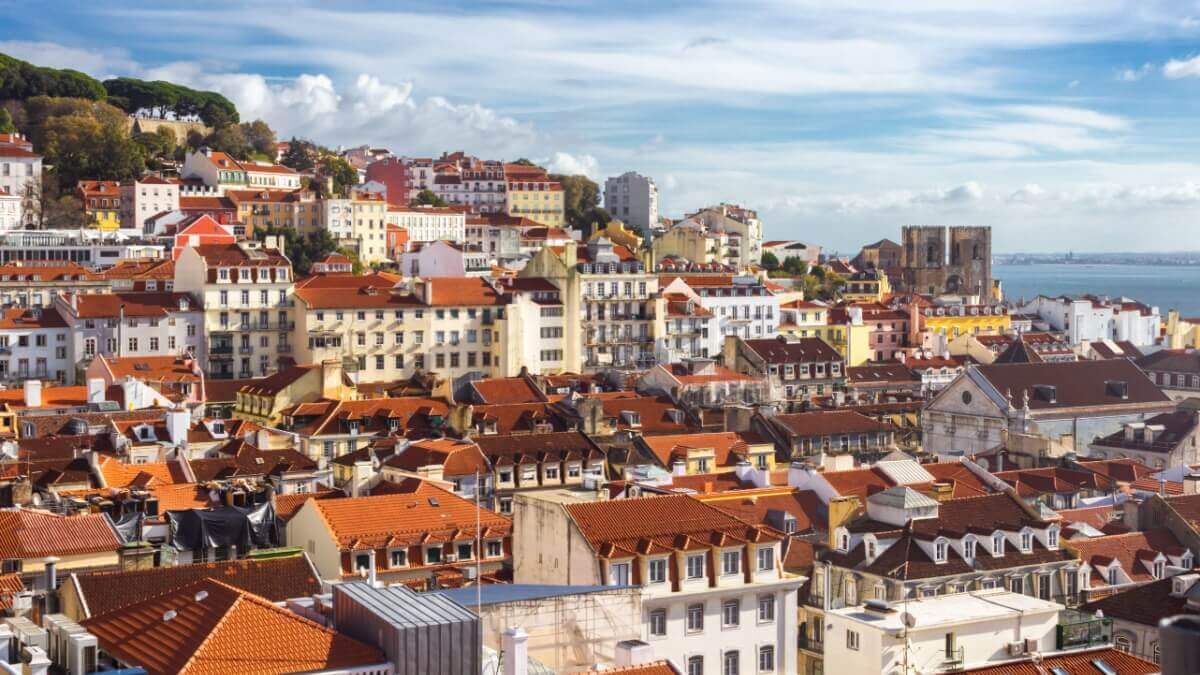
Moving to Portugal is exciting, but figuring out where to live can be stressful. Whether you're moving for work, traveling as a digital nomad, or going to study, this guide answers all your questions so you can find your dream rental and avoid hiccups in the process.
Heading abroad? Manage your money with ease. Use Wise to pay your rent in Portugal and save on fees.
There are no restrictions preventing foreigners from renting properties in Portugal.
While 77% of the Portuguese own their homes, cities like Lisbon and Porto are becoming more and more popular with expats who prefer renting an apartment in Portugal.¹
As long as you have all of your documents in order, renting in Portugal should be relatively straightforward.
Rental prices in Portugal have been steadily increasing over the last few years. In fact, they rose by a whopping 5.9% per square meter (m2) year-on-year in January 2024.²
Yet, Portugal is still one of the most affordable countries in Europe. You can expect to pay around 1,300 USD per month for a one-bedroom apartment in Lisbon.³ In contrast, a one-bedroom in Zurich, Switzerland can cost well over 2,000 USD per month.⁴
These prices can fluctuate based on demand, season, and specific neighborhoods. Average rent in Portugal tends to be higher in city centers and close to popular tourist attractions.
| City | Monthly rent for 1-Bedroom |
|---|---|
| Lisbon | 1,000-1,700 USD⁵ |
| Porto | 800-1,300 USD⁵ |
| Faro | 700-1,200 USD⁵ |
| Coimbra | 600-1,000 USD⁵ |
| Cascais | 1,100-1,900 USD⁵ |
| Wondering how much that would cost in EUR? Check out this handy conversion calculator |
|---|
In addition to making your monthly rent payment, you'll need to cover a rental deposit, utilities, and an internet bill. Some landlords include utility costs in the rental price, but it's rare, especially if your apartment has air conditioning and heating.
| Category | Cost |
|---|---|
| Rental deposit | Two-three months’ rent⁶ |
| Utilities | 100-200 USD³ |
| Internet | 30-55 USD³ |
To rent property in Portugal as a foreigner, you'll need to get together a few documents. Here's what you'll typically need:
- A passport or another form of ID
- Portuguese fiscal number (Número de Identificação Fiscal, NIF)
- Proof of income (employment contract, bank statements, or tax return)
If you're a student, you may need a parent or a guardian to show proof of income documents on your behalf.
Landlords may also sometimes require a guarantor (fiador), especially if they're not satisfied with your proof of income.
Your guarantor must be a Portuguese resident, which can be a problem for people who've just moved to Portugal and don't know many people yet. If you don't have a guarantor, some landlords might ask you to pay 6-12 months' rent upfront.

Wise offers you a quick, secure and transparent way of sending money to Portugal. You get the mid-market exchange rate for your payments and see how much it’s charged for the transfer before sending the money from your bank.
With the Wise Account you can also hold 40+ currencies, spend money in 150+ countries, and receive like a local in 9 different currencies.
Please see Terms of Use for your region or visit Wise Fees & Pricing for the most up to date pricing and fee information
When it comes to renting in Portugal, you have options. There are many living arrangements available to suit different tastes and budgets, especially in major cities like Lisbon and Porto.
Apartment rentals are popular in cities and towns, ranging from studios to multi-bedroom units. Most are furnished apartments, but you may be able to negotiate to remove some of the furniture if you need to.
Generally speaking, most people in Portugal rent apartments. They typically have a fully-equipped kitchen, but some may not have a washing machine. In this case, you can use laundromats, which are popular in Portugal.
Short-term rentals can be a great option when you're new to Portugal and want to spend some time exploring different areas and the rental market before committing to something more permanent.
Affordable housing options near universities, sometimes with shared facilities, are perfect for students on a budget.
It's hard to find houses for rent in cities like Lisbon and Porto, but you may find good options in suburban and rural areas for more space and privacy.
With the average rental prices going up in Portugal, many people are considering renting rooms in shared apartments, known as flatshares, to save money.
| Considering buying instead of renting? Read our full guide on buying property in Portugal here. |
|---|
Searching for a place to rent in Portugal may feel daunting at first, but there are a few effective ways to find a good rental.
Using a real estate agent makes the search process simple, especially when you're unfamiliar with the local market.
Your agent can find listings that fit your requirements and budget, arrange viewings, handle negotiations, and support you as you go through the process.
Real estate agents charge a fee for their work, but it can be worth it for the convenience. Plus, most real estate agents speak English. This comes in handy if you don't speak Portuguese.
Websites like Idealista, OLX, and Imovirtual list rental properties in Portugal that you can filter by location, price, and property type to find the right option for you.
When you use an online platform, you will most likely have to communicate with the landlord directly, which typically requires speaking some Portuguese. That said, many people in Lisbon, Porto, and other big cities speak some English.
Unfortunately, rental scams can happen in Portugal like in any other country. To protect yourself, follow these tips:
- Verify the property and landlord to make sure that the property exists and the person renting it out is legitimate
- Avoid paying deposits or rent before seeing the property and signing a rental contract
- Use reputable, well-known websites and registered real estate agents
- Consider opening a bank account in Portugal or using a secure platform to transfer money like Wise
Overall, stay vigilant and use common sense to avoid scams. If something seems too good to be true, it probably is.
Not all rental properties in Portugal were made equal. Make a list of important factors for you to keep in mind as you investigate different properties.
Here are a few common things to consider:
| Item | Details |
|---|---|
| Amenities | Look for grocery stores, restaurants, pharmacies, hospitals, schools, parks, and entertainment options for a higher quality of life |
| Repairs | Note any repairs the apartment needs and discuss them with the landlord so they can be fixed before you move in |
| Furnishing | Verify what furniture and appliances are included in the rental and make sure they're in good working order |
| Utilities | If utilities are not included, ask for an estimate of the monthly costs |
| Heating and cooling systems | Portugal gets hot in the summer and cold in the winter, so make sure that your apartment has heating and cooling systems or a portable heater |
| Lease term | In Portugal, a rental contract gets automatically renewed unless one of the parties ends it. Be sure to understand the duration of the lease and notice periods |
| Noise | Visit the rental to check for outside disruptions. City apartments may have traffic, construction, or nightlife noise |
| Subletting | Ask your landlord if you're allowed to sublet your apartment in case you're traveling or if you have a spare room for extra income |
Don't commit to the first rental you see. Investigate different options and take your time to make an informed decision. With the rental property supply soaring by 81% in the first quarter of 2024, there are more than enough options for you in Portugal.⁷
The process of applying for a rental in Portugal is relatively straightforward.
When you work with a property agency, your agent will schedule viewings of a few places to rent in Portugal. You'll tour the properties together and will be able to ask questions about the conditions and amenities. Your real estate agent will help you translate if needed.
Once you decide what property you want to rent, you'll need to submit the required documents, including your ID, Número de Identificação Fiscal, and proof of income. Your real estate agent might help you prepare these documents or obtain any additional ones.
Then, you'll sign your contract and pay the deposit. You'll also need to start paying your rent on the date outlined in your contract.
The steps of applying to rent a property from a private landlord are similar to working with an agency. You'll need to schedule a viewing, submit the necessary documents, and sign your contract.
The difference is that you're on your own and need to manage all of the communication and document prep by yourself. This can make the process more stressful, especially if you don't speak Portuguese.
There's typically little room to negotiate your rent with the landlords. You're welcome to try, but the rental market in cities like Lisbon, Porto, and Faro is competitive, so there's a lot of demand. It may be easier to negotiate housing in Portugal in a smaller town or rural area.
Tenancy contracts in Portugal are called contrato de arrendamento. They are legally binding documents that outline the terms of your rental agreement and protect both you and your landlord.
A standard contract typically includes:
- Names and IDs of both parties
- Property address
- The rent amount and when it must be paid
- Contract duration
Rental contracts in Portugal can be either fixed-term (contrato com prazo certo) or open-ended (contrato por duração indeterminada). Usually, the contracts have a minimum duration of one year and renew automatically unless one of the parties terminates it.
If you want to end the contract, you must give at least two months' notice. The same applies to your landlord, but it's typically much harder for landlords to end contracts than it is for tenants.
Portuguese laws are tenant-friendly.
Landlords are required to give a 2-month notice for terminating a lease, and can only start the eviction process if the tenant hasn't paid rent for 3 months.
If the landlord needs to renovate the property, they must find you a new accommodation in the same area. If you paid for any necessary renovations, you have the right to get reimbursed.
Your landlord can keep your deposit if there's any damage to the rental. To resolve disputes, visit Associação dos Inquilinos e Condóminos do Norte de Portugal.
The best city to rent in Portugal depends on your personal preferences because each of them has its unique charm and advantages. Living in cities like Lisbon, Porto, and Cascais is more expensive than renting in smaller cities like Faro and Coimbra.
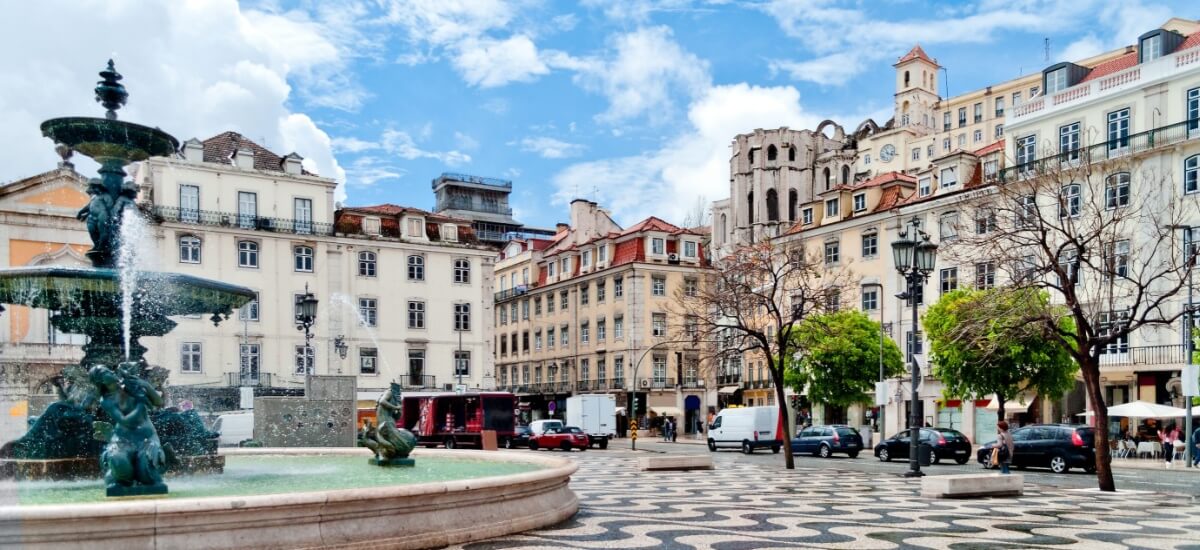
The most famous Portuguese city, Lisbon, is rich with culture and historic charm. It may not be the cheapest place to rent in Portugal, but its mild climate and diverse neighborhoods more than make up for it.
In April 2024, the average rental price in Lisbon was 20.89 USD per square meter.⁵
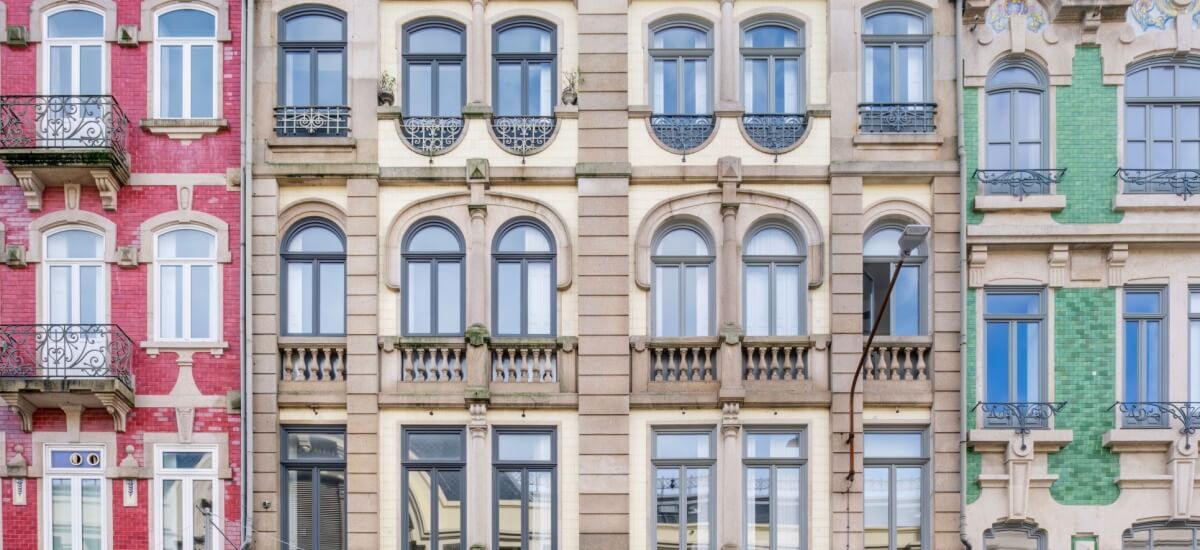
Porto is Portugal's second-largest city, and its historical center is a UNESCO World Heritage site. It offers a relatively lower cost of living compared to Lisbon as well as an impressive art scene.
The average rent in Porto is 15.04 USD per square meter depending on your neighborhood.⁵
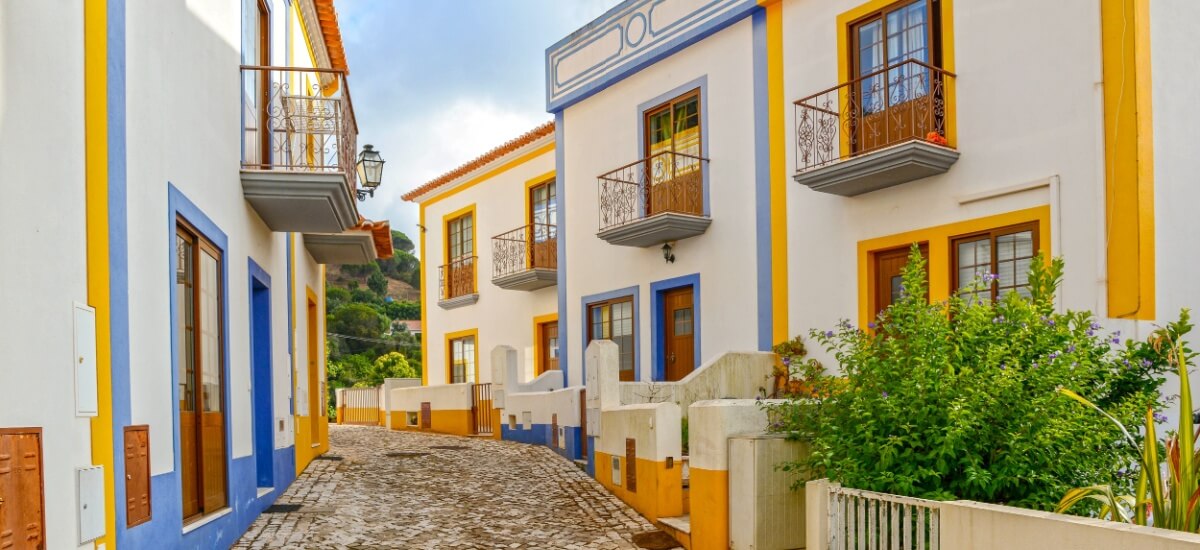
Expats and locals alike move to Faro for its beautiful beaches and cobbled streets. It has a slower pace of life than cities like Lisbon and Porto, and you can expect to pay 14.72 USD per square meter in rent.⁵
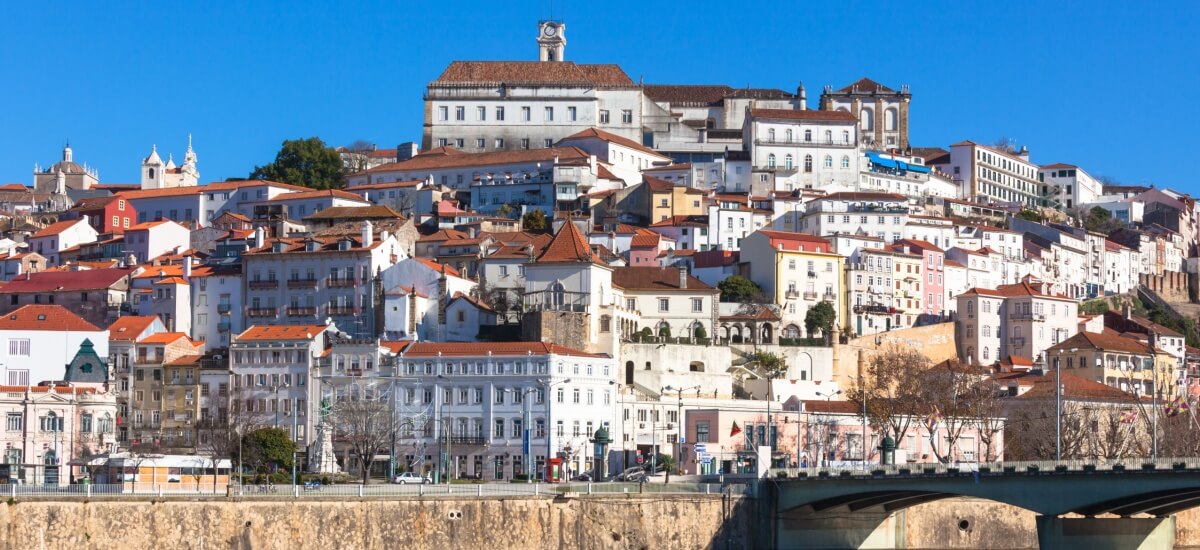
A historic city in central Portugal, Coimbra is one of the most affordable cities in Portugal. You can expect the average rent for a 3-bedroom apartment in the city center to run a little over 1,200 USD.⁸
In Lisbon, you'd be paying 2,500+ USD for similar accommodation.⁵
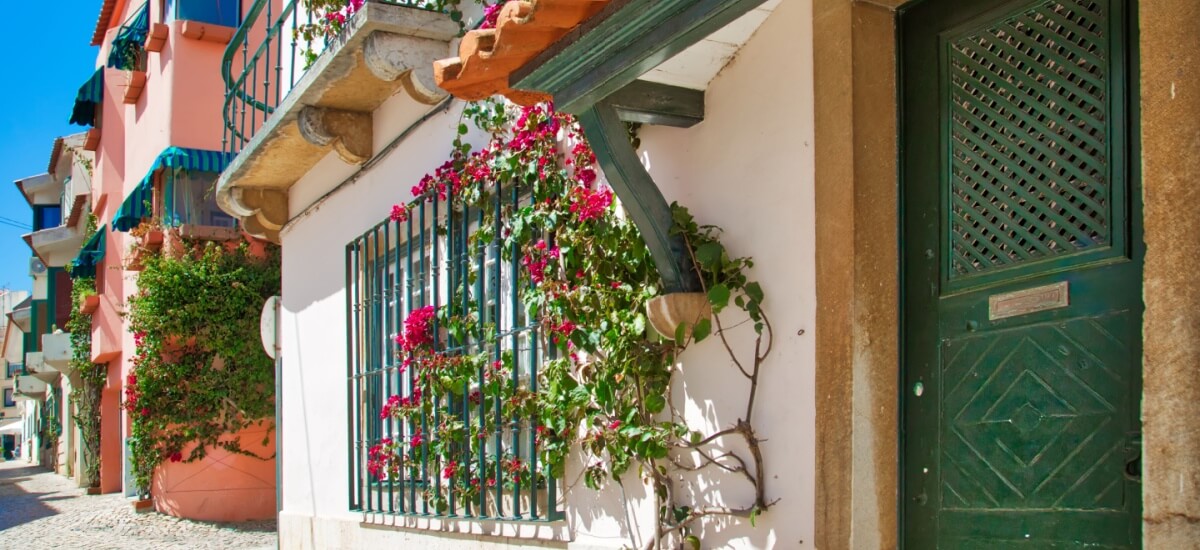
A coastal town located just a short train ride from Lisbon, Cascais is known for its upscale living. It's one of the most expensive places to live in Portugal, with an average 3-bedroom apartment costing between 1,500 USD and 3,300 USD per month in rent.⁹
Renting in Portugal gives you an opportunity to live in one of Europe's most beautiful countries. The only problem? Transferring money overseas often gets complicated and costs you in fees.
Take on the world with Wise and start sending, spending, and converting your money like a local, all at the mid-market exchange rate.
| Read further |
|---|
|
Sources:
Sources checked on 07.29.2024
*Please see terms of use and product availability for your region or visit Wise fees and pricing for the most up to date pricing and fee information.
This publication is provided for general information purposes and does not constitute legal, tax or other professional advice from Wise Payments Limited or its subsidiaries and its affiliates, and it is not intended as a substitute for obtaining advice from a financial advisor or any other professional.
We make no representations, warranties or guarantees, whether expressed or implied, that the content in the publication is accurate, complete or up to date.

What taxes do you need to pay when selling property in Portugal? Have a look at our guide to learn all about types, deadlines, and special considerations.
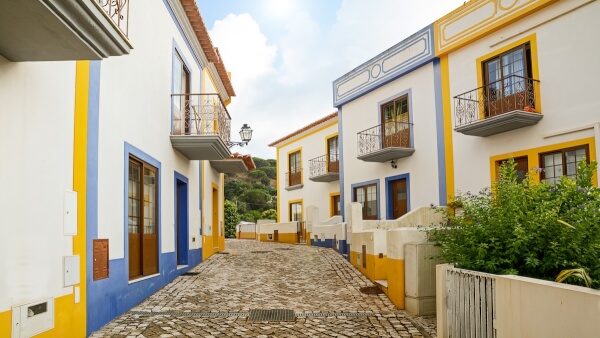
Want to learn about property taxes in Portugal? This guide covers types of property taxes and how they are calculated to help you navigate the process.

Take a look at the full in-depth guide for Portugal D7 Visa requirements and prepare for the next exciting international chapter of your life.

Wondering how to get a Portugal D8 Visa as an American? Take a look at our overview and learn about the steps and documents throughout the process.

If you're a US expat in Portugal, check out this guide to know whether you're subject to Portugal taxes and how to fulfill your US reporting obligations.

Find everything you need to know about moving to Portugal in this handy guide.